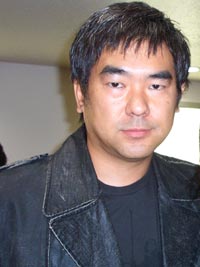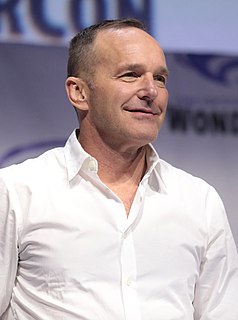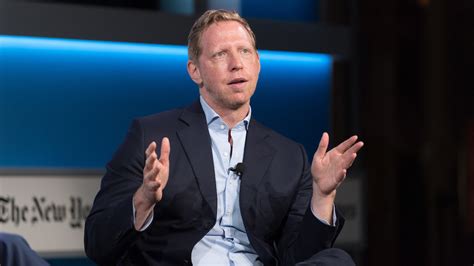A Quote by Melissa Leo
I think I understand the line between my job and the director's. I have no interest in directing. Not my movie, not your movie, nobody's movie.
Related Quotes
What's interesting as a director, and even studio executives don't understand this, is that if you're directing a $200 million movie with six million people, it's the same as directing a $25,000 movie with three people. The director's job is, "You stand there and do that," or "This is the shot I want." The logistics change, but the job remains the same. And I enjoy the job.
I had seen "Force Majeure" and I just love that movie so much. And I really wanted to artistically give a little hello to the filmmakers, and that kind of back and forth dialogue between artists that say, "I loved your movie. I was influenced by your movie. If I didn't have this job, I wouldn't be thinking of that. Do my TV show and then one day I'll make a movie where I can play with some of the visual themes in "Force Majeure."
I think Memento movie was hard because people didn't get it, they just didn't understand it. Not from the stage when we read the script and liked it. It's sort of a famous story now how we finished the movie and showed it to distributors and nobody wanted it. So it wasn't just they didn't get the script, they really didn't even understand the movie when it was done. But I think that was a particularly hard one. I don't think it was harder because we were girls, but I do think obviously there are particular challenges to working in a male-dominated industry.
Giancarlo Giammetti has a lot of nervous energy. He's a director, really. He was trying to direct the Valentino movie over my shoulder. I don't blame him - that's been his job for 50 years. But I had final cut in the movie by contract and I wouldn't have made the movie if I had not been completely independent.
In editing, you really face what the movie is. When you shoot it, you have this illusion that you're making the masterpieces that you're inspired by. But when you finally edit the movie, the movie is just a movie, so there is always a hint of disappointment, particularly when you see your first cut.
With Dawn I was afraid people would just think it's a B-movie and I didn't know what I was doing. That's really what I was afraid of. Like the subtlety of the movie they would miss. If the movie succeeds, it's that people understand the subtlety. That they're able to see past the conventions of what they think a movie is and go a teeny bit deeper and let it be both.
I don't really like those sorts of actresses who say, 'I don't want to make that movie,' but they make the movie. They just spend their time not liking being on a set and I just think it's absurd, because we are so lucky to do this job. When you accept to make a movie, just make the movie. And then it's more easy for relationships.
If you watched a movie about a guy who wanted a Volvo and worked for years to get it, you wouldn’t cry at the end when he drove off the lot, testing the windshield wipers. You wouldn’t tell your friends you saw a beautiful movie or go home and put a record on to think about the story you’d seen. The truth is, you wouldn’t remember that movie a week later, except you’d feel robbed and want your money back. Nobody cries at the end of a movie about a guy who wants a Volvo.


































